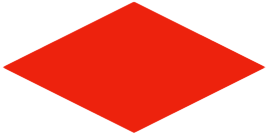
Reclaim your Ability to Focus
Start small – then get serious
Going from a distracted way of living to a focused one is difficult. Our ability to focus is like a muscle, we can strengthen through meticulous practice. Think about it. Only an idiot would walk into a gym for the first time and try to lift the heaviest dumbels. Overexerting ourselves at the beginning of an endeavor leads to dwindling motivation and the assumption that we are not cut out for this. If you find you cannot focus for more than a few minutes at the moment, do not be surprised. The modern world trains us to be in a constant state of distraction.
When I first began to get serious about improving my attention span, I found that I struggled to work on one thing for more than 5-15 minutes at a time. By increasing the length of my work sessions, minute by minute, over several months that has become 45-60 minutes. For extremely demanding work (such as reading academic papers) 30-minute blocks are necessary. If I had jumped straight into hour long work sessions I would have ended up spending most of that time staring into space, getting precious little done.
However small we start, a point comes when the actual hard stuff (in this case, the long uninterrupted sessions) has to be done. Let’s acknowledge that. When I wrote about how I read 200 books a year, I emphasized that there is no secret speed reading technique – I sit and read the damn books. No shortcuts, no summaries, no sped up audio books. Even so, people still ask me for ‘hacks’ and ‘tips.’ To be frank, I know of none. Reading requires focus, so the important point in this post is, once again, that we have to put the hours in.
Batch tasks together based on difficulty and intensity
When we look at a long to-do list at the start of the day, who wouldn’t want to start with the easiest tasks? The problem with this is that it usually results in hours passing without us completing any meaningful work. A good solution is to batch together tasks which require a similar degree of focus. Writing 3 blog posts in one go. Reading a whole book in a single sitting. Handling paperwork in one marathon session.
I learnt the technique of batching tasks based on their difficult from Chris Bailey’s brilliant book, The Productivity Project. My current day plans are made in a notebook with two columns on each page for making plans. High intensity, difficult work (reading academic papers, working on articles and blog posts etc) goes in the left column and easier, low-intensity work goes on the right (emails, chores, submitting work, typing up research notes.) The easy stuff gets done in one go once everything else is finished. Batching gives me a sense of cognitive consistency, as I am not switching between deep and shallow work throughout the day.
Another reason batching works is because of the Zeigarnik effect. According to psychologists, unfinished tasks claim more mental energy than completed ones. In fact, we often forget all about something once we complete it. My brother once sat a maths exam, followed by a physics one two days later. The second exam ended up requiring a maths technique which he had used in the first, yet he forgot it in that short time. The Zeigarnik effect damages our ability to focus when we switch between different tasks. Let’s say I have three important emails to reply to. I answer two, then work on something else. Even if I don’t notice it, the third will still be tugging at my concentration. Answering all 3 in one go would prevent this and mean clearer thinking.
Concrete plans and small wins
Measurable goals are an important component of focused working. I like to break big projects into small chunks (e.g. research, outline, structure, intro, conclusion etc.) This gives me the satisfaction of being able to tick items off my to-do list at regular intervals. I can see how far I am progressing over the course of the day. If it’s not on my plan, it does not exist so if something comes up, I schedule it ahead to avoid working in a reactive manner.
A clear plan, made in advance, is the easiest way to remove the barriers to focusing. I like to allocate blocks of time to each task and tell myself that I either do it then, or I don’t do. Plans also reduce decision fatigue.
Work in cycles
Deep focus does not mean hours of focus. If I enter a flow state (often during technical work or photo editing) I might continue for over an hour, but it is rare for a single stretch to last longer than that. Taking breaks is important. I like to pause after 30-60 minutes for fresh air, a drink and a few pages of a book. I try to avoid doing anything too stimulating during breaks, to prevent my focus from snapping. I am also a strong advocate for napping. Naps are good. Naps are the best. I actually work best when I adopt a biphasic sleep pattern – sleeping from about 2am-7am, then 4pm-7pm.
Eliminate distracting options
Just as focus is a muscle, willpower is too. Exerting too much self-discipline trying to stay away from distractions is exhausting. My solution is simple: I block any site which could be used to waste my time between 10 am and midnight each day. Cold Turkey is my best friend. I keep the bare minimum apps on my phone (no games, social media, email etc) and avoid having it near me when I work. Plus, it is set up to show no notifications, never make noise and I have put all the apps in one folder, so I have to search for what I need.
I know some people consider doing this a bit drastic- after all, shouldn’t we just learn to resist distractions? Maybe that can work, but I prefer to just not give myself the option. After a few weeks of using something like Cold Turkey, not opening news sites at random becomes a habit and requires less effort.
Don’t look for a magic bullet
Nope, a 5-minute life hack is not going to give you the magical ability to focus. It takes work to rebuild this skill which the modern world is designed to erode. Neotropics, fancy teas, binaural beats and certain stationary colours are not the answer. Like any skill, focusing requires careful practice. Small tweaks can make a difference, but they will not undo years of poor cognitive hygiene.
Separate locations
Never work where you relax or relax where you work. This might be the most important lesson I have learnt. The impact of our surroundings on our brains is profound. I don’t have an office to go to, so I work in my favourite coffee shop or the library. If I want to work a bit later, I head to my favourite bar. The ritual of packing a bag, walking somewhere to work and setting up is the important part. These locations are now associated with the act of deep focus.
Repetitive music
I learnt this technique from Ryan Holiday. Working in silence is miserable, and flipping between different genres and artists is distracting. The solution is to listen to a single playlist, album or even one song on repeat while working. Each day, I chose a Bright Eyes album and loop it while I work. For a high degree of focus, listening to one song is powerful. I always go for Stay High by Tove Lo or The Night Josh Tillman Came to Our Apartment by Father John Misty- for some reason those two songs seem to lull me into a trance.
Meditative tasks
Classic meditation is not necessary to reap the benefits of attentional training. Any task can be meditative if treated as such. The secret is to focus on one thing and keep pulling your mind back when it wanders off to something else. Some meditative tasks I often turn to include:
- Thinking about an upcoming piece of writing while walking.
- Typing using WriteOrDie (a site which makes you keep up with a set number of words per minute or it deletes what you have already written. Brutal and somewhat effective.)
- Timed language practice on Duolingo or Memrise. Both give you a few seconds to answer each question which requires a high degree of focus.
- Reading a whole book in one sitting, without putting it down. My heart sings when I get a chance to do this. This is a fantastic training exercise and a rewarding way to spend a few hours.
Keep a record of your progress
With any new habit, keep track of each practice session and how well it goes is valuable. I use Toggl to keep a record of my time spent working. Toggl is fantastic – I have a separate category for each project and I start a timer for each session spent working on it. If I get distracted for a moment, I pause the timer. At the end of the day, I can see how long each session was and if I was more distracted than usual.
Keeping a record of your progress also makes it easier to spot distraction triggers. In my notebook where I make daily plans, I jot down a few lines about how my work went at the end of the day. If it was difficult to focus, I will try and establish why- was I tired? In the wrong location? Distracted by an argument I had with someone? These notes have enabled me to get a clear picture of exactly what I need to do my best work.
At the end of the day, try writing down how long you worked for, what you got done in that time and any significant distractions. I used to keep a spreadsheet which was a tad obsessive so a few lines in my notebook is a nice middle ground.
Work less
Better focus means fewer hours of work, but fewer hours of work also means better focus. Parkinson’s law states that tasks expand to fill the time allotted to them. I have a rule of not writing for more than 7 hours a day, 7 days a week- it forces me to work in an efficient manner and not waste time tweaking irrelevant details.
More hours do not = more work done. Judging from my work records, I am more productive now than when I used to write for 10+ hours a day, every day because of the intensity with which I can focus. One hour of deep work is worth 3 hours of shallow work.

Shrimp Tempura Ramen

Accordion Potatoes




